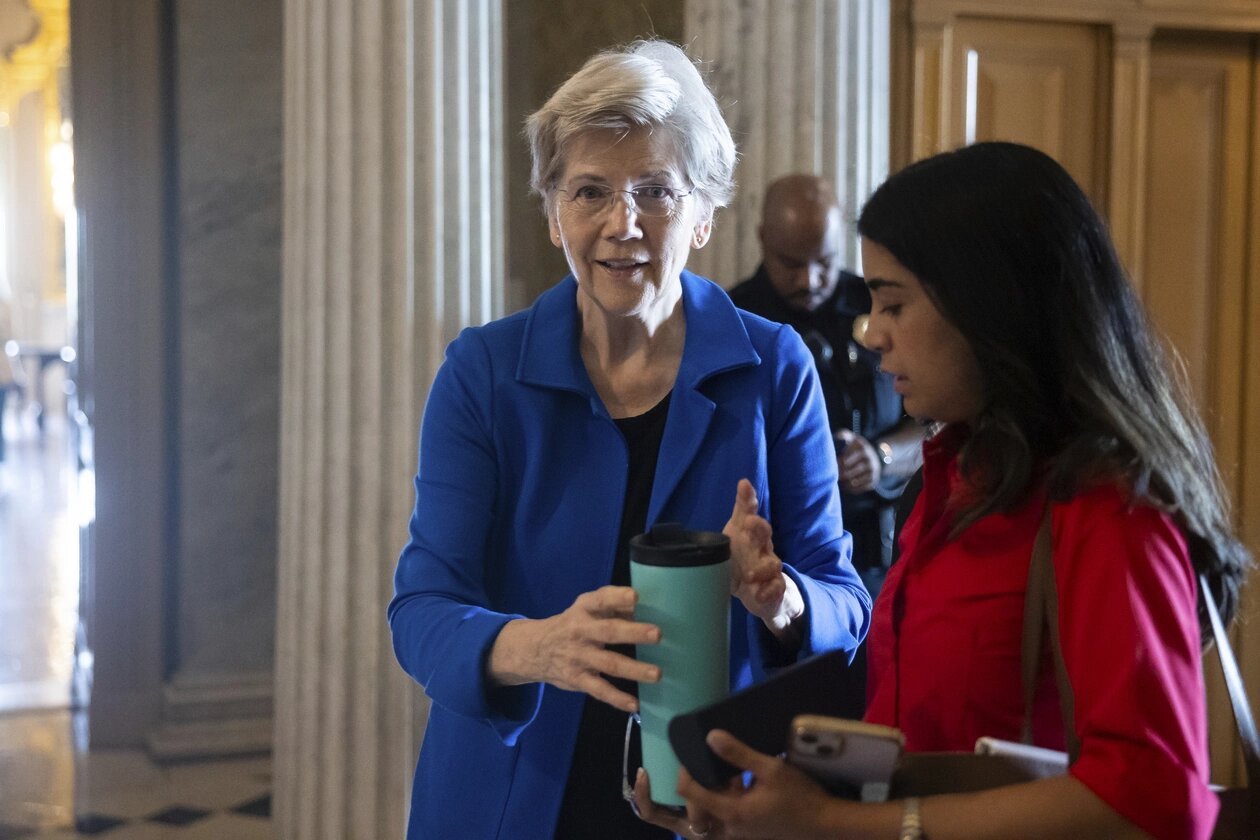The Supplemental Nutrition Assistance Program, which helps feed more than 40 million people, will start to run out of funds Nov. 1.

Missed paychecks, canceled infrastructure projects and mass firings haven’t yet convinced congressional Democrats to change their government shutdown stance. But they are now facing down another pressure point threatening a program they’ve long championed benefiting millions of Americans.
The Supplemental Nutrition Assistance Program, which helps feed more than 40 million people, will start to run out of funds Nov. 1, President Donald Trump’s USDA is warning. At least 25 states plan to cut off benefits starting on that date — including California, the overwhelmingly Democratic state with 4.5 million SNAP recipients.
The food-aid cliff has largely flown under the radar as Democrats focus on another Nov. 1 development: the launch of open enrollment for Affordable Care Act insurance plans in most states. They believe massive premium hikes prompted by the expiration of key federal subsidies will compel Republicans to relent and negotiate an extension at that time.
So far, despite the possible food assistance fallout in just over a week, top Democrats are pushing ahead and refusing to shore up the votes to reopen the government.
Asked Tuesday if the cliff would change his party’s calculus, Senate Minority Leader Chuck Schumer said it would not: “It should change Republicans’ calculus, that they should sit down and negotiate — negotiate a way to address this crisis.”
Sen. Elizabeth Warren (D-Mass.), asked if it was worth pushing the shutdown beyond Nov. 1 given the risk of food aid lapsing, replied, “Worth it to whom? To people who will lose their health care or to people who will lose their food?”
“We’re people who want Americans to have health care and food,” she added. “The Republicans, evidently, don’t care whether they have either.”
Trump and members of his administration have acted selectively to ease shutdown impacts on agencies and programs they perceive as benefiting their political allies — shifting funds to pay active duty troops, for instance, while letting civilian workers go unpaid.
That approach appears to be playing out at USDA, where there is no firm indication the Trump administration will act to patch the impending SNAP lapse. A separate initiative delivering baby formula and other nutrition aid under the Women, Infants and Children program is also at risk next month after the White House moved to use some tariff revenue as a backfill early in the shutdown.
At the same time, the administration is planning to partially reopen key farm loans and shuttered local USDA offices beginning Thursday — addressing a key GOP shutdown pain point that Senate Majority Leader John Thune and other farm state Republican lawmakers have pressed the White House on since the shutdown started four weeks ago.
The food-aid cliff has largely flown under the radar as Democrats focus on another Nov. 1 development: the launch of open enrollment for Affordable Care Act insurance plans in most states. They believe massive premium hikes prompted by the expiration of key federal subsidies will compel Republicans to relent and negotiate an extension at that time.
So far, despite the possible food assistance fallout in just over a week, top Democrats are pushing ahead and refusing to shore up the votes to reopen the government.
Asked Tuesday if the cliff would change his party’s calculus, Senate Minority Leader Chuck Schumer said it would not: “It should change Republicans’ calculus, that they should sit down and negotiate — negotiate a way to address this crisis.”
Sen. Elizabeth Warren (D-Mass.), asked if it was worth pushing the shutdown beyond Nov. 1 given the risk of food aid lapsing, replied, “Worth it to whom? To people who will lose their health care or to people who will lose their food?”
“We’re people who want Americans to have health care and food,” she added. “The Republicans, evidently, don’t care whether they have either.”
Trump and members of his administration have acted selectively to ease shutdown impacts on agencies and programs they perceive as benefiting their political allies — shifting funds to pay active duty troops, for instance, while letting civilian workers go unpaid.
That approach appears to be playing out at USDA, where there is no firm indication the Trump administration will act to patch the impending SNAP lapse. A separate initiative delivering baby formula and other nutrition aid under the Women, Infants and Children program is also at risk next month after the White House moved to use some tariff revenue as a backfill early in the shutdown.
At the same time, the administration is planning to partially reopen key farm loans and shuttered local USDA offices beginning Thursday — addressing a key GOP shutdown pain point that Senate Majority Leader John Thune and other farm state Republican lawmakers have pressed the White House on since the shutdown started four weeks ago.
